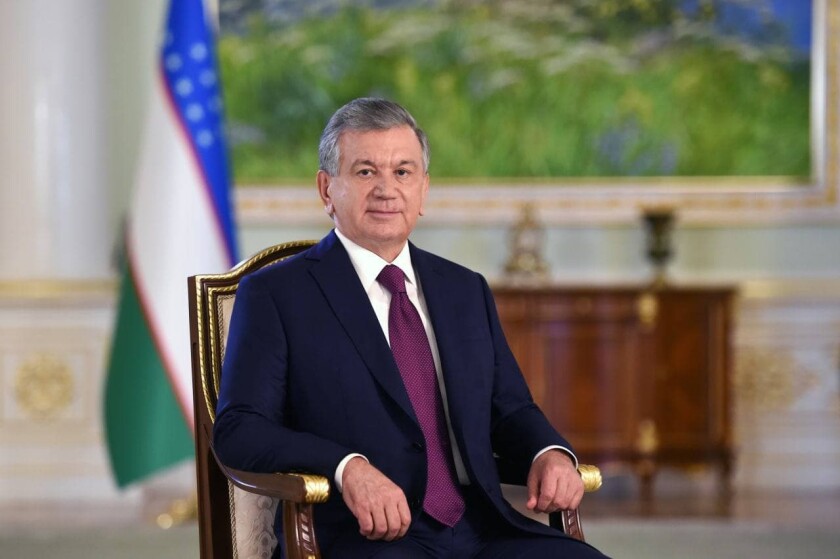Foreword by Deputy Prime Minister – Minister for Economic Development and Poverty Reduction H.E. Jamshid Kuchkarov
Uzbekistan is opening-up to the world and sees openness as a key solution for the recent global problems. It is an openness policy that encompasses people, businesses, and international institutions.
This approach has already benefited the country, which, over the past few years, has demonstrated stability, development, and robust economic growth.
Such growth and development creates a solid foundation from which Uzbekistan can achieve middle-income status in the years ahead. Indeed, through sustained, high growth rates in key economic sectors, Uzbekistan aims to increase per capita income to $2,800 by 2026 and $4,000 by 2030.
One of the priority tasks of reforming the economy remains to accelerate the processes of transformation and privatization of state-owned enterprises
Importantly, the country’s growth and development is inclusive and financially sustainable. We are focused on ensuring that the state budget deficit does not exceed 3% of GDP, and that foreign external debt does not exceed $4.5bn per year. This will be achieved through disciplined management and close coordination of fiscal, monetary, and structural reforms, together with our efforts to gradually reduce annual inflation to the medium-term target level.
The private sector is a key driver of economic growth, and our privatization programme, which includes state-owned enterprises across sectors and non-agricultural land, will help accelerate growth further.
We have already started the privatization process for commercial banks, with the aim of increasing the share of the private sector banks in the banking system to 60%, which will help create a more competitive environment for the industry to thrive.
In addition, we are also planning to attract investment – via public-private partnerships – worth $14bn by 2026 in the energy, transport, healthcare, education, environment, utilities, water, and other sectors. We are also preparing public sector enterprises to be listed via IPOs, which means ensuring they have the required financial stability, dividend policy, corporate governance structures, and are compliant with international standards on environment, social, and governance issues (ESG).
Mitigating the impacts of climate change is a critical component of our transition to a green economy, which is a key objective of the country. As a result, we are preparing the agricultural and water resource sectors for climate change challenges, including a focus on ensuring food and drinking water security, and agribusiness development. Our ultimate aim is to reduce carbon dioxide emissions per unit of GDP by 35%.
As part of our reform programme, we have taken a holistic approach to developing a domestic institutional investor base (composing banks, insurers, pension, and investment funds) that is necessary to support integrated financial markets. Side by side with this, we are also aiming, through our liberalization programme, to attract foreign investors to our domestic financial market.
We will resolutely continue the reform programme to further support entrepreneurship, reduce the tax burden and create the equal conditions for all to support business and the necessary infrastructure. A guaranteed supply of energy resources to the population and entrepreneurs will be achieved by creating a market based on free competition
One of our specific aims here is to increase the capitalization of the Uzbekistan stock market to $7bn by 2026, which will include IPOs of large enterprises and banks to ensure supply. To support this, we are developing frameworks to enable growth in hedging instruments, derivatives, and secondary mortgage market products.
Attracting investors is critical to our development mission and enabling a developed, mature and sophisticated business environment. Important in this is ensuring rule of law to protect private property and provide businesses with a level playing field and access to necessary input materials and markets. Combined with this, we are improving the quality of public service provision for business (including ensuring the continuity of public services) and reducing costs, balancing between promoting competition and favoring small businesses, abolishing exclusive rights, and providing opportunities to agribusiness.
Importantly, Uzbekistan has all the necessary human resources to support this. Indeed, the country benefits from a demographic dividend – a young and ambitious population. To support their advancement, we are focused on improving the quality of education, and in supporting professional educational reforms. The aim is to double the coverage of the professional education system by 2026, which means building skills to enhance the employability of our people at home and abroad.
Finally, we are implementing the new social protection and poverty reduction strategy, which involves protecting public health and increasing medical personnel. As part of this we are creating a centralised medical laboratory and high-tech research centre, as well as gradually introducing mandatory health insurance.
Together with this, our urbanisation policy will boost residential housing construction to cover over 275,000 families.
